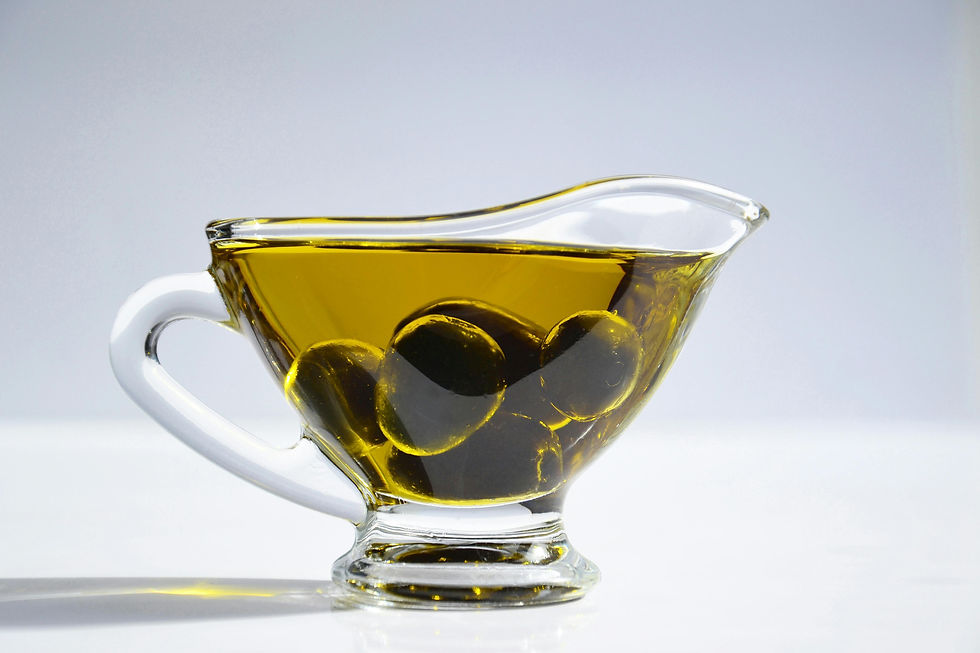6 Vital Tips to Follow Before Using Olive Oil
- Elevated Magazines

- May 14
- 4 min read
Olive oil has long been celebrated for its numerous health benefits and culinary versatility. Its rich flavor and healthy fats make it a staple in many kitchens. Yet, with the growing number of olive oil products on the market, selecting the right one can be challenging. Ensuring quality is crucial as it impacts both taste and nutritional benefits. Therefore, familiarizing yourself with the essential aspects of olive oil before integrating it into your cooking can elevate your culinary creations while promoting health.

Understanding Olive Oil Types
Before you choose the olive oil that best suits your needs, it's important to understand the different types available. The distinction between extra virgin, virgin, and regular olive oil comes down to the method of extraction and the quality of the olives used. Extra virgin olive oil is the highest grade and is extracted from first-press olives without the use of chemicals, ensuring a fresh flavor and aroma.
This type is ideal for salad dressings or drizzling over finished dishes to enhance their taste. Regular olive oil, while still healthy, is often blended or processed and lacks the robust flavor of its higher-quality counterparts. The term cold pressed signifies a technique that retains more of the oil's nutrients and flavors, making it a sought-after option among health-conscious consumers. Therefore, whenever possible, opt for extra virgin olive oil for optimal taste and health benefits.
Choosing Quality Olive Oil
Not all olive oils are created equal; hence, knowing how to select quality options is essential. The most reliable way to assess quality is to check for certifications on the label. Look for seals from reputable organizations that ensure the oil has been tested and meets high standards. Aside from certifications, pay attention to the packaging. Olive oil is best stored in dark glass bottles to protect it from light, which can degrade its quality.
Clear bottles may indicate poor quality or a lack of care in packaging. Consider the harvest date printed on the label. Freshness matters, as olive oil does have a shelf life. Ideally, use olive oil within 18-24 months of harvest for the best flavor and health benefits. Sensory evaluation plays a role in quality assessment, so sample various brands to understand what high-quality olive oil tastes like.
Understanding Flavor Profiles
The flavor of olive oil can vary significantly based on the variety of olives and the region of production. Some oils are fruity and mild, while others are vibrant and peppery, reflecting their unique terroirs. Familiarizing yourself with different flavor profiles allows you to select an olive oil that pairs well with your dishes.
A robust, peppery olive oil can enhance hearty foods, while a delicate, mild oil pairs beautifully with lighter fare such as fish or salads. Tasting different types helps you appreciate the complexities of olive oil. Try participating in olive oil tastings or workshops, where you can learn from experts and sample various oils side by side.
Storing Olive Oil Properly
How you store olive oil significantly affects its longevity and quality. Proper storage ensures that the oil retains its flavors and health benefits for as long as possible. Always keep olive oil in a cool, dark place away from direct sunlight and heat sources. A kitchen pantry, far from the stove, is typically ideal. Avoid storing it in clear containers, which can lead to oxidation and a quicker deterioration of quality.
Ensure the bottle is tightly sealed to prevent exposure to air, which can cause rancidity. Some experts recommend refrigerating olive oil, although this can lead to cloudiness and may alter the texture. If you choose to refrigerate, allow it to return to room temperature before using it to restore its original consistency.
Utilizing Olive Oil in Cooking
Olive oil's versatility extends beyond just dressings; understanding how to use it in cooking is key. While it has a higher smoke point than many other oils, it's best to use extra virgin olive oil on low to medium heat to avoid thermal degradation. If you're sautéing vegetables or making sauces, moderate heat will preserve the oil's flavor and health benefits.
Using olive oil as a finishing touch enhances the taste of a dish, with a simple drizzle elevating the flavor profile. Its aromatic properties lend themselves beautifully to marinades and dipping sauces. By experimenting with different applications in your cooking, you can discover new ways to incorporate olive oil and appreciate its benefits fully.
Recognizing Common Olive Oil Scams
As the popularity of olive oil rises, unfortunately, so do the scams that target unsuspecting consumers. Many brands may label their product as “pure” or “light” while being heavily processed or diluted with other oils. Referring to established brands and those that source olives from reputable regions can help steer clear of these pitfalls. There are regions known for high-quality production, such as Italy and Spain.
Transparency in sourcing and production practices is vital to ensure you're purchasing legitimate olive oil. You can further verify quality by looking for specific origins on the label. Educating yourself about potential scams will empower you to make smarter choices and invest in genuine olive oil.

By following these six essential tips, you'll improve your olive oil experience and enrich your culinary creations. Understanding the different types, selecting quality oil, recognizing unique flavor profiles, proper storage, and cooking techniques will lead to more informed choices. Taking the time to educate yourself can transform ordinary dishes into delightful masterpieces.
